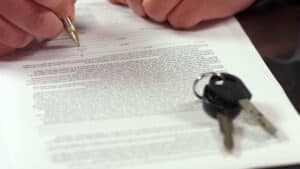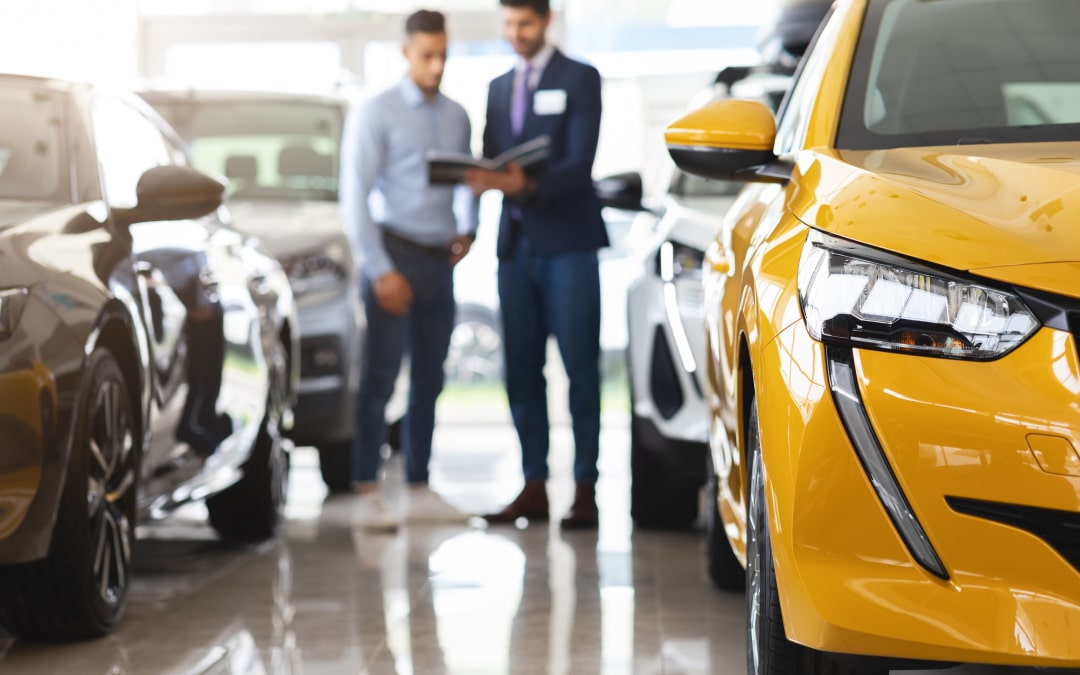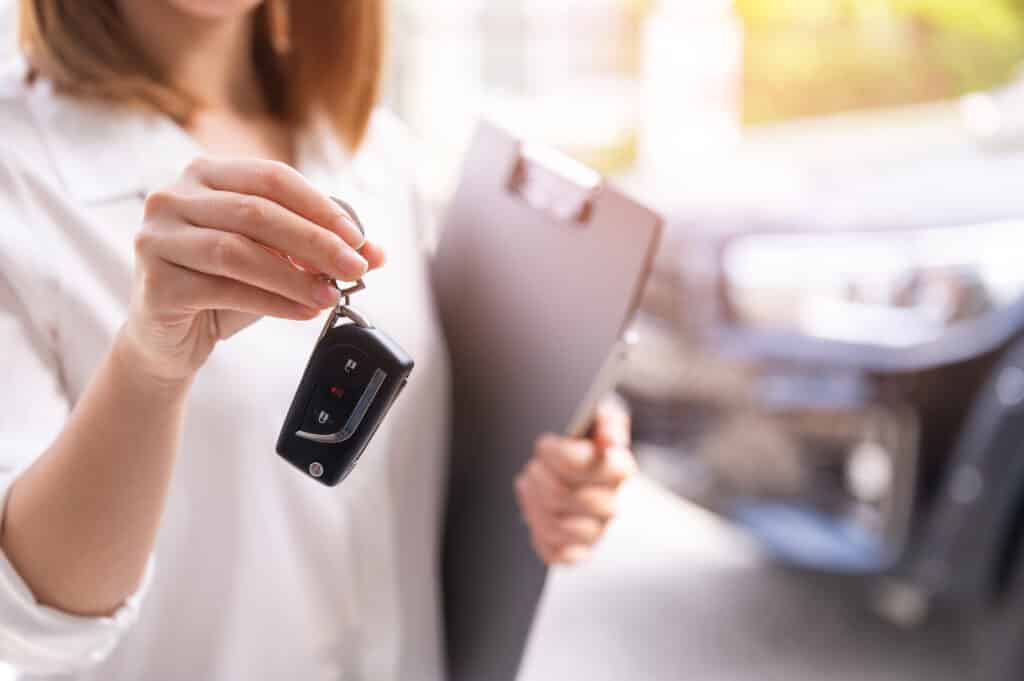Understanding car leasing in Ireland might feel complicated, especially for individuals who are experiencing it for the first time. At Mahony Fleet, we have been leading the way in vehicle leasing for more than 55 years and provide tailored solutions to suit both SMEs and multinational corporations. This article will explore everything about car leasing in Ireland, starting with the basics for those new to it and ending with details on ending a lease early.
First-Time Handbook to Leasing a Car in Ireland
Understanding its fundamentals is crucial if you are considering leasing a car for the first time. Car leasing, also known as contract hire, is much like hiring a vehicle but for an extended duration that usually spans 2 to 5 years.
When leasing a car, you can also get extras like, car tax, servicing, tyres, roadside assistance, a relief vehicle, and a dedicated account manager included in the price. If you wish, you can also include a fuel card in your monthly payment, making driving a vehicle a streamlined process.
Instead of purchasing a car directly, you make monthly payments for using the vehicle without having any ownership responsibilities, such as worrying about having to sell the car at a loss in the future. Here’s how to go about getting started with car leasing in Ireland:
Choose Your Car
Leasing a Car: The first step in renting a car is determining the make and model that suits your requirements. This decision should come after careful evaluation of what you need and like. Consider these factors:
- Fuel Efficiency is particularly crucial for people who drive long distances frequently. Opting for a car that uses less fuel can noticeably lower your monthly fuel expenses.
- Space and Size: Consider the amount of space you require. If you are thinking about a VAN would an SUV or Crossover, be a better option, whereas a compact car or hatchback might suit cases where it is all city driving.
- Technology and Features: Cars have many features these days, such as high-level navigation systems, Bluetooth connections, and driver-assisting technologies which help with driver safety. It would help if you decided which features are necessary for your vehicle before you start shopping.
- Brand and Style: A car’s brand also matters to some people because of how they perceive its reliability, design, or performance and that’s okay. The style of a car might be essential for you in terms of how it represents your personal or business image. Remember, you should always be happy with the car your lease as you will be the one driving it.
Agree on a Lease Term
- Lease Term: The lease term is the length of time that you agree to lease the car. It’s an essential choice because it determines your monthly payments and your contract duration. Normal lease terms are:
- Short-Term Leases (24-36 months): These are good for people who like flexibility and want to change cars often.
- Standard Leases (48 months): This is a typical lease period, offering a good balance between manageable monthly payments and the advantages of leasing.
- Long-Term Leases (60 months): Choose for this if you like continuity and want to keep monthly payments lower but remember that there could be more maintenance/repair related costs over time.
Determine Annual Mileage
Your lease will mention a yearly mileage restriction, so it is important to forecast the miles you plan on driving every year. Going over your mileage limit may result in extra fees.
Understand the Payments
Knowing the financial side of your lease is crucial. Here, you need to understand:
- First Payment: A first payment is required, equivalent to your first month’s payment and your last two payments combined.
- In a three-year quote, this is called a 3+33. This initial sum could influence your initial monthly expenses but potentially lessen the monetary commitment.
- Your monthly payments often include the price of road tax, tyres, maintenance, a relief vehicle, and a dedicated account executive. Should you need new tyres or a service, the cost is already covered by your monthly payments. When your car is in for a service, your monthly payments also cover the cost of a relief vehicle, meaning you don’t have to wait around for your car to be serviced.
Maintenance and Insurance
Deciding on maintenance and insurance is a crucial part of the leasing process. Here’s what you need to keep in mind:
- Maintenance Packages: Most leasing companies offer a maintenance package, which might be the more economical option. As mentioned above, Mahony Fleet’s maintenance package includes regular service checks, needed repairs, and tyres as well.
- Insurance: For your leased car, you must have full car insurance. Certain lease contracts may include insurance, but more often than not it is your responsibility to organise the appropriate coverage.
- Gap Insurance: Consider gap insurance. It pays for the difference between what your insurance pays if the car is declared a total loss and how much you still owe on the lease.
Additional Tips for First-Time Lessees
If you are organising this yourself here are some additional tips to keep in mind:
- Research: Dedicate time to research on different cars and lease offers.
- Reviews: Check customer reviews for the car and model. This will provide you with information about how dependable and responsive they are.
- Understand the Details: Study the lease contract thoroughly, and only after understanding its content should you sign it. Confirm that you understand items like ending the lease prior to the agreed-upon time, regular use damage, and the procedure at the end of leasing.
One of the benefits of working with Mahony Fleet is that we do these things on your behalf and our purchasing power gives us opportunities to get savings that we pass on to our customers.
Why Lease a Car?
Why lease a car instead of buying one? Leasing has benefits that could make it more appealing to many businesses. Let us explore the reasons why leasing is popular:
- Lower Monthly Payments: The first benefit of leasing a car is that it usually comes with lower monthly payments. When you rent, your regular payment only covers the vehicle’s depreciation during lease term and not its total purchase cost (plus interest and other charges).
- Price: When you make payments for a lease, these are typically lower per month compared to loan payments. As a result, more expensive models become more accessible for many businesses.
- Better Cash Flow: Reduced monthly payments enhance cash flow for businesses and individuals, helping them manage their finances more effectively and distribute resources to other areas.
- Access to Newer Models: Leasing is an agreement between the driver and the leasing company where you pay for using a vehicle over a specific period. It allows people to change their cars frequently without having the economic commitment of owning a car for a long time.
- Enjoy New Features: With leasing, you can experience the latest technology, safety features, and fuel efficiencies that new models bring.
- Prestige: Using more recent car models can boost your personal or business reputation, as you are constantly observed in an up-to-date and well-kept vehicle.
- Reliability: Newer cars are less likely to need repairs other than regular maintenance, which could be covered by warranties and lease contracts.
- No Resale Worries: In leasing, the difficulty of selling a used car is eliminated. This is specifically beneficial because:
- Depreciation Concerns: The vehicle’s depreciation and loss of equity are not things you need to worry about; they are the concern of the leasing company.
- Easy Shift: When your agreement finishes, you can return the car or choose to continue with a fresh lease. It’s not necessary to manage selling an old vehicle.
- Fluctuations in the Market: You are not at risk from ups and downs in the market for car resale value – you will not experience any effect.
Tax Benefits for Businesses
In terms of tax, leasing can provide businesses with notable financial benefits compared to buying:
- Deductible Expenses: Lease payments may be deductible as business expenses, which can help reduce total taxable income.
- Off-Balance Sheet Financing: Leasing helps improve your company’s financial ratios because it keeps the leased assets and corresponding debts away from the balance sheet, making your company look better in finance.
- Recovering VAT: Businesses can sometimes recover VAT on lease payments, too. This helps reduce the cost of leasing.
- Flexibility and Convenience: Flexibility is a significant advantage of leasing over buying, especially for people who want to change cars often or require vehicles for limited durations such as project work:
- Adaptability: Alter your vehicle according to your requirements without being restricted to a lengthy financial contract.
- Customisation: The lease deal allows you to personalise your car with particular specifications more economically than buying it.
- Reduced Breaks: As newer cars often do not need big fixes, you have fewer breaks and can better predict your operational expenses.
Advantages of Leasing a Car in Ireland
Like any financial decision, car leasing has both advantages and disadvantages:
Advantages
- Costs that are easy to predict: Most leases, especially those with maintenance service included, have costs that can be easily predicted. This helps in budget planning.
- Flexibility: You have the option to select another new car, purchase your leased car (if allowed by the agreement), or return it when the lease is over.
- Lower Initial Payment: Leasing typically requires a smaller upfront payment than buying a car.
The Best Way to Lease a Car
When determining the best option for you these are the things that we help our customers with:
- Do Research: Understand your options and look for special offers and rebates.
- Review Terms Thoroughly: Understand all the lease terms, including mileage limits and wear-and-tear guidelines.
- Think About Your Future Needs: Pick the correct lease term and mileage limit that aligns with how much you drive and what you require.
- Maintenance Bundles: Think about whether it’s rational to have a maintenance package in your lease for anticipated service expenses.

Ending Car Lease Early
There can be situations that cause you to finish your car lease before it’s scheduled to end. Even though lease agreements are intended to run their course, there are methods for leaving a lease agreement early:
- Lease Transfer: In specific contracts, you could be permitted to transfer the lease to another individual. This person assumes control of the lease according to its current conditions.
- Early Buyout: You have the option to buy the car before the lease expires. The cost is typically calculated as a combination of remaining lease payments and the vehicle’s residual value.
- End of Lease: You return the vehicle to the leasing company and handle all possible termination charges, plus any leftover depreciation expense.
- Trade-In: Sometimes, you can trade in your leased car for a new lease. Any negative equity will likely be included in the new lease.
Understanding these alternatives can help lessen the monetary burden if you are forced to terminate a lease before its due date.
Car leasing in Ireland is a flexible and cost-effective way for people and enterprises to handle their driving requirements. When you understand the details of leasing, from making the first choice to handling your lease or even ending it ahead of time if needed, this knowledge will guide you in making wise decisions that best suit your financial situation and car needs.
Contact Mahony Fleet if you want to learn more about car leasing in Ireland. Our professionals will help you understand the process and find the best leasing option that matches your situation and requirements. Allow us to assist you in driving the car you want with conditions that suit you.





